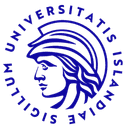Explore how sheep grazing impacts Iceland's landscape, examining the intersection of traditional farming practices with environmental sustainability.
Explore how sheep grazing impacts Iceland's landscape, examining the intersection of traditional farming practices with environmental sustainability.
This course investigates the environmental impact of sheep grazing in Iceland, using it as a case study to understand broader issues of sustainable resource management. Students explore how human land use can rival natural forces in shaping landscapes, examining the complex relationship between traditional farming practices and environmental degradation. The course covers historical perspectives, current management practices, and future sustainability challenges, integrating ecological principles with socioeconomic factors to understand effective resource management in the face of environmental change.
Instructors:
English
English
What you'll learn
Understand the cultural and economic significance of sheep grazing in Iceland
Analyze the environmental impacts of traditional grazing practices
Examine ecological principles governing grazing systems
Evaluate current approaches to sustainable grazing management
Skills you'll gain
This course includes:
PreRecorded video
Graded assignments, exams
Access on Mobile, Tablet, Desktop
Limited Access access
Shareable certificate
Closed caption
Get a Completion Certificate
Share your certificate with prospective employers and your professional network on LinkedIn.
Created by
Provided by

Top companies offer this course to their employees
Top companies provide this course to enhance their employees' skills, ensuring they excel in handling complex projects and drive organizational success.





There are 5 modules in this course
This course examines the environmental impact of sheep grazing in Iceland and its implications for sustainable resource management. Students learn about the historical development of sheep farming, its cultural significance, and its environmental consequences. The curriculum explores ecological principles governing grazing systems, current management practices, and strategies for sustainable land use. Through this case study, students gain insights into broader issues of environmental conservation and sustainable resource management.
Course Introduction
Module 1
Sheep Grazing in the North
Module 2
Historical Perspective of Sheep Grazing in Iceland
Module 3
The Present and Future of Sheep Grazing in Iceland
Module 4
Summary and Conclusions
Module 5
Fee Structure
Instructors

1 Course
Leading Palaeoecologist and Environmental Change Expert
Egill Erlendsson serves as a Professor in the Faculty of Life and Environmental Sciences at the University of Iceland's School of Engineering and Natural Sciences, where he has established himself as a prominent figure in palaeoecology and environmental reconstruction. His academic journey began with a BSc in Geography from the University of Iceland in 2002, followed by a PhD from the University of Aberdeen in 2007, focusing on environmental changes during Iceland's Norse settlement period. His groundbreaking research has significantly advanced our understanding of Iceland's historical landscapes through innovative studies of lake sediments, which reveal patterns of climate change and landscape erosion in western Iceland. As a skilled palaeoecologist, his work combines archaeological, historical, and palaeoenvironmental evidence to reconstruct Iceland's past environments, offering crucial insights into how the landscape evolved before human settlement and subsequent agricultural activities. His research is particularly valuable as it examines Iceland's Holocene environment during its uninhabited period, free of mammalian herbivores, providing essential data about natural ecosystem processes. Through his position at the University of Iceland, he continues to contribute to our understanding of environmental change and human impact on Iceland's dynamic and vulnerable landscapes, while also focusing on vegetation history, soil erosion, and archaeological investigations that help piece together the complex story of Iceland's environmental past

1 Course
Pioneering Soil Scientist and Environmental Research Leader
Ólafur Arnalds, born on January 5, 1954, is a distinguished professor at the Agricultural University of Iceland who has revolutionized our understanding of volcanic soils and soil erosion processes. His academic journey includes a BSc in geology from the University of Iceland, an MSc in soil science from Montana State University, and a PhD in soil science from Texas A&M University in 1990. As one of Iceland's pioneering soil scientists, he has made groundbreaking contributions to the field, including creating Iceland's comprehensive soil map and authoring the definitive work "The Soils of Iceland" published by Springer. His remarkable research on soil erosion in Iceland earned him the prestigious Nordic Council Environmental Prize in 1998, highlighting his crucial work on wind erosion processes and dust production from Icelandic deserts, which ranks among the world's highest. Since 2005, he has served as a professor at the Agricultural University of Iceland, where he previously held the position of Dean until 2012. His research portfolio spans volcanic soil areas, soil genesis, ecological restoration, and carbon sequestration, while also leading the development of the Icelandic farmland landcover database (Nytjaland). In collaboration with his wife, Dr. Ása L. Aradóttir, also a professor at the Agricultural University of Iceland, he helped establish the UN UNESCO Land Restoration Training Program. His teaching contributions include core participation in the UN University Land Restoration Training Programme and development of courses such as "A Business Approach to Sustainable Landscape Restoration" and comprehensive soil science programs at the Agricultural University of Iceland.
Testimonials
Testimonials and success stories are a testament to the quality of this program and its impact on your career and learning journey. Be the first to help others make an informed decision by sharing your review of the course.
Frequently asked questions
Below are some of the most commonly asked questions about this course. We aim to provide clear and concise answers to help you better understand the course content, structure, and any other relevant information. If you have any additional questions or if your question is not listed here, please don't hesitate to reach out to our support team for further assistance.



